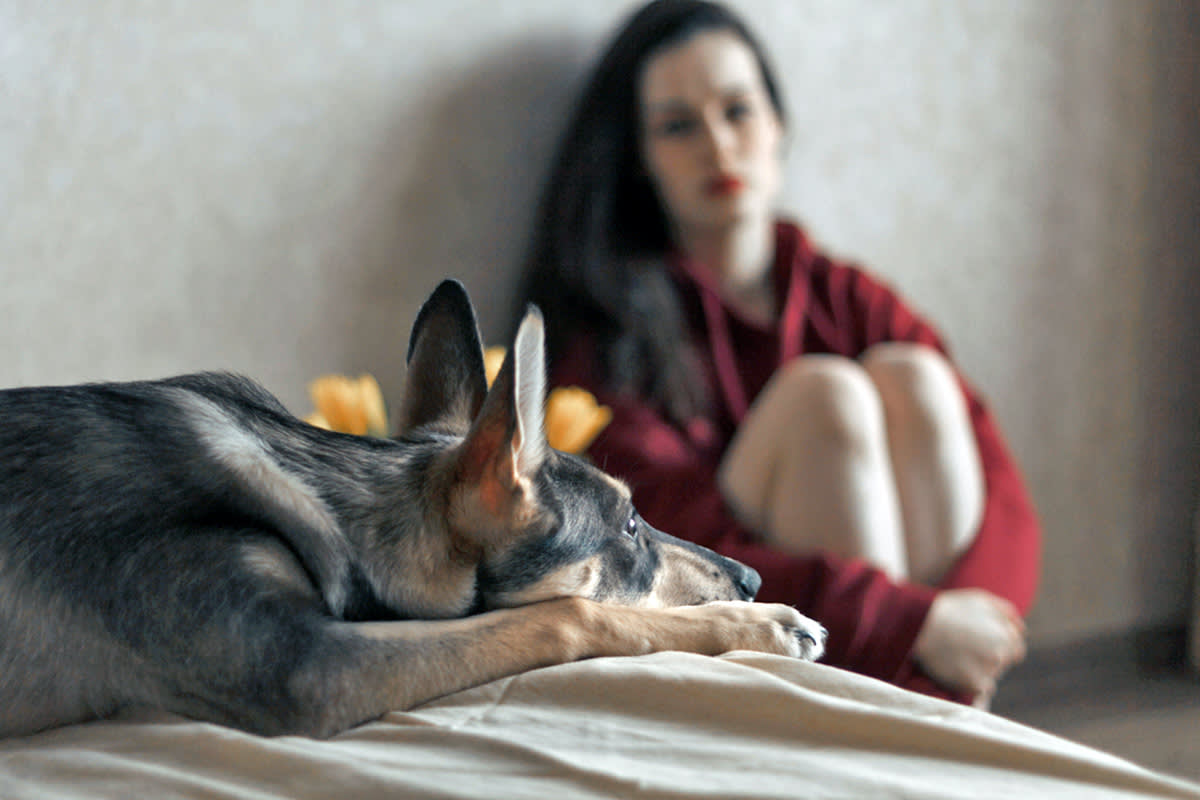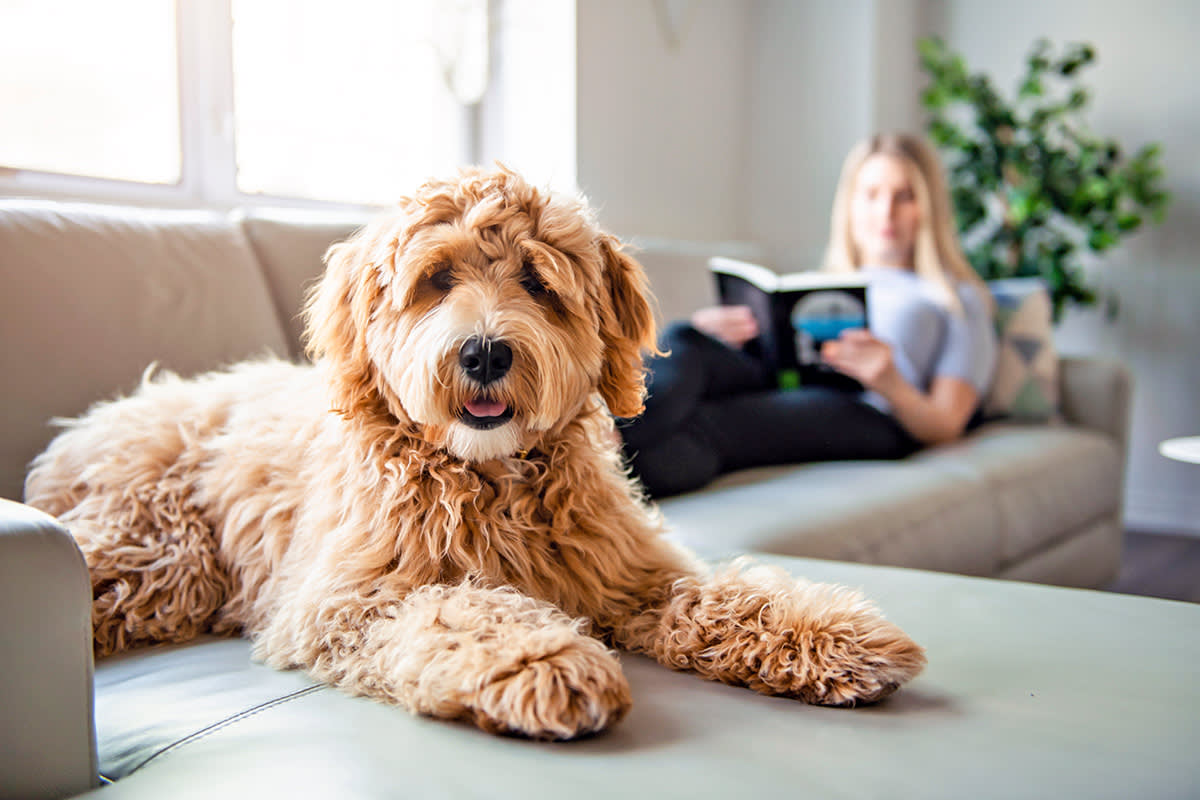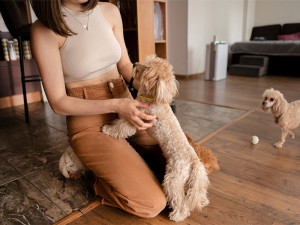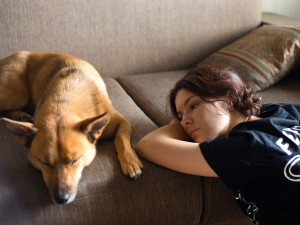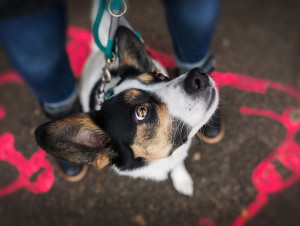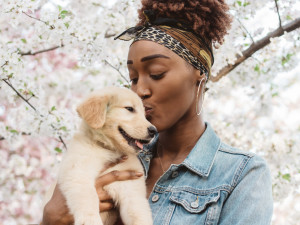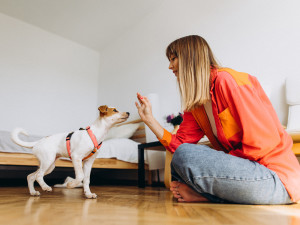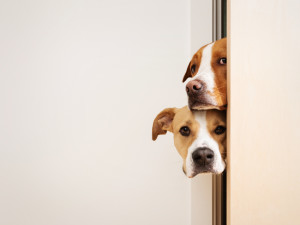Here’s Why Your Dog Doesn’t Like to Cuddle
Not everyone’s love language is touch.
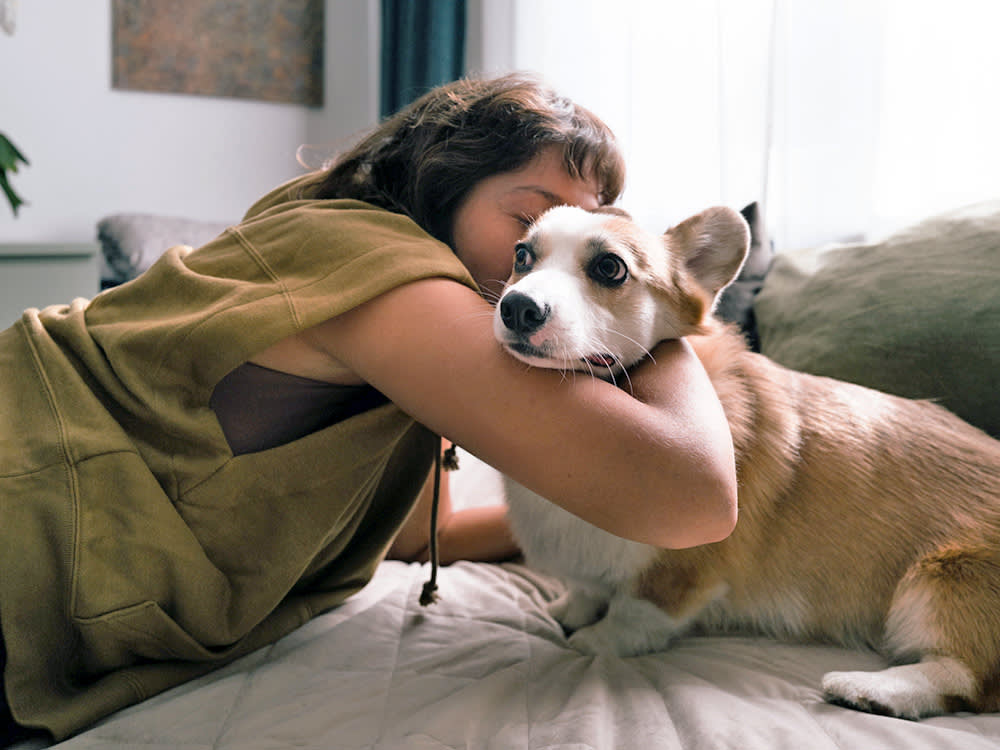
Share Article
If you don’t have a super snuggly pup who prefers to spend 90 percent of their time on top of you, then this might be a common question that you ask yourself. Perhaps you’re wondering if you’re doing something wrong. Or if you just have a cat-like dog. You’re definitely not the only one having these thoughts.
Reddit user Wilson74075 took to r/DogAdviceopens in new tab last month to ask for some help deciphering his pup’s behavioropens in new tab: “Why won’t my dog cuddle with me, but he will do this?” He attached a photoopens in new tab of his dog standing and leaning with their back facing him, aka getting as close to cuddling as he had to without... cuddling.
“My dog is very independent, not sure why but he always puts his back to my legs no matter what anytime he sees me. Does anyone know why he does this?” He asked, “He likes to lay by himself a lot and is very independent but he listens very very well.”
We consulted two dog behavior experts to get to the bottom of why some dogs don’t cuddle, and if it’s possible to turn a dog who is allergic to touch into a serious snuggle bug.

Why do certain dogs not cuddle?
There can be many reasons that it isn’t in your dog’s nature to cuddle. It can be the way they were raised as a puppy, it could be their breed, health, or it could be their individual preferences.
“Some dogs need time to decompress and truly relax,” says Hannah Richteropens in new tab, New York City-based dog trainer. “Sometimes, it is hard for dogs to fully relax when right next to us.”
Just think about it — it must be hard to sleep when someone is constantly touching you and cooing over how sweet you are. Lorraine Rhoads, senior director of health and safety at Dogtopiaopens in new tab, adds that cuddling can be overstimulating for some dogs.
“If a dog was raised with an abundant amount of hugs and cuddles from an early age, they are likely to be more comfortable with snuggle time as they get older,” Rhoads says. She adds that certain dog breeds were bred to work at a distance — herding dogs, for example — and they might prefer their own space.
What if my dog wasn’t raised with cuddling?
Some rescue or adopted pups who do not have good early experiences with humans might not realize that cuddling is on the agenda, per Richter.
“Puppies who are gently handled, exposed to positive human touch, and socialized during critical developmental periods are more likely to enjoy or at least tolerate close contact as adults,” Rhoads explains. “In contrast, dogs who experienced rough handling, neglect, or limited human interaction early on may be more cautious or uncomfortable with cuddling.”
All that said, forcing your dog to cuddle with you is not going to make them enjoy it, in fact, could stress them out even more. “Patience, understanding, and positive reinforcement are crucial when working with dogs who are fearful of physical contact to build trust,” Rhoads adds.
Are there certain signs that a dog doesn’t enjoy cuddling, even if they tolerate it?
Just as some dogs really don’t enjoy hugsopens in new tab, the same applies from cuddling. You often won’t get anything as aggressive as a growl when your pup doesn’t want to cuddle — they’ll give you plenty of subtle physical cues that they aren’t into.
“Signs of discomfort include stiffening or tensing up, avoiding eye contact, turning their head away, licking their lips, ears flattening on the back of their head, closed mouth or tight face muscles, yawning, or moving to get away once released,” Rhoads says. “Some dogs may also give a low growl or show the whites of their eyes (known as ‘whale eye’) if they’re especially uneasy.”
It’s important to respect your dog’s boundaries, as you expect them to respect yours. Let your pup choose whether they want to cuddle or not.
Is it possible to train a dog to cuddle?
“Yes!” Richter says. “By practicing handling or pairing food with touch, we can teach our dogs that touch predicts good things.” This training is especially important for rescue pups who are particularly wary or skittish around humans.
That said, some dogs just aren’t very snuggly, so even if you make progress with your pup, don’t expect them to spend hours on the couch with you. You’re just setting yourself up for some hurt feelings. But snuggling isn’t the only sign that your pup adores you. We know that sometimes dogs can be hard to read (unless they are part of an extremely talkative breed like Huskies), so one of our pup expert called out some affectionate behaviors for you to identify.
Non-cuddling behaviors a dog does to show they love their pet parent
“A dog doesn’t have to cuddle to show they love you!” Rhoads says. “Common affectionate behaviors include following you from room to room, checking in with you during walks with a quick look or circling back, wagging their tail when you enter the room, bringing you toys, leaning against you, responding to your requests eagerly or lying near (but not on) you. Even just making soft eye contact or responding happily when you talk to them can be a clear sign of their affection.”
So, when it comes to our friend on Reddit, here’s the definitive answer: His pup might not enjoy cuddling, but he’s showing affection for his person all the same. “It sounds like this dog is what we would call a Velcro dog or a dog who likes to be right next to their person,” Richter says. “This position is likely occurring because the dog finds comfort and safety.”
You might not always get the cuddles you want, but when your pup leans against your legs, you’ll know it’s their version and appreciate that moment that much more.
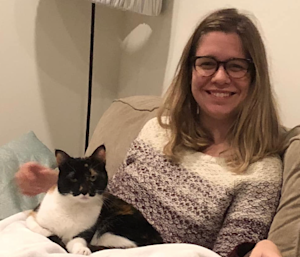
Alicia Kort
Alicia Kort is a writer and editor living in Brooklyn. Her work has appeared in Esquire, InStyle, Apartment Therapy, The Kitchn, Parade Home & Garden, Newsweek, Interview, Brooklyn magazine, and more. In her free time, she runs, reads, and spends time with her dog-nieces, Maya and Lady, and her cat-niece, Pepper. In her work, she focuses on pet behavior, pet-friendly spaces, and the lifestyle commerce space.
Related articles
![A woman sitting on a floor playing with her dogs.]()
How to Know if Your Dog Has Imprinted on You
If they’re following you around like your shadow, there’s a reason for that.
Does My Dog Love Me? How to Interpret Canine Bonding Behavior
What to do when you don’t feel the close bond you want.
![Dog on leash sitting on a colorful street and looking attentive at their pet parent]()
How to Get Your Dog to Pay Attention to You
Here are some simple steps to pry your pup away from that one spot in the yard they’re obsessed with.
![woman draped in an orange blanket holds a black-and-white puppy]()
5 Development Stages You Should Know When You Get a Puppy
It’s like What to Expect When You’re Expecting, except add “four little paws to run around your house” to the title.
![A beautiful trained cute puppy obediently obeys the commands of its female owner at home.]()
5 Important Puppy Behavioral Milestones to Keep Track Of
Your little cutie is growing up in many ways—look out for these big stages as they do.
![Two fearful adolescent dogs peeking through a slightly open door]()
Puppy Fear Periods: Why is My Dog Scared All of a Sudden?
Turns out, adolescence isn’t just tough for humans—it can be hard on dogs, too.
